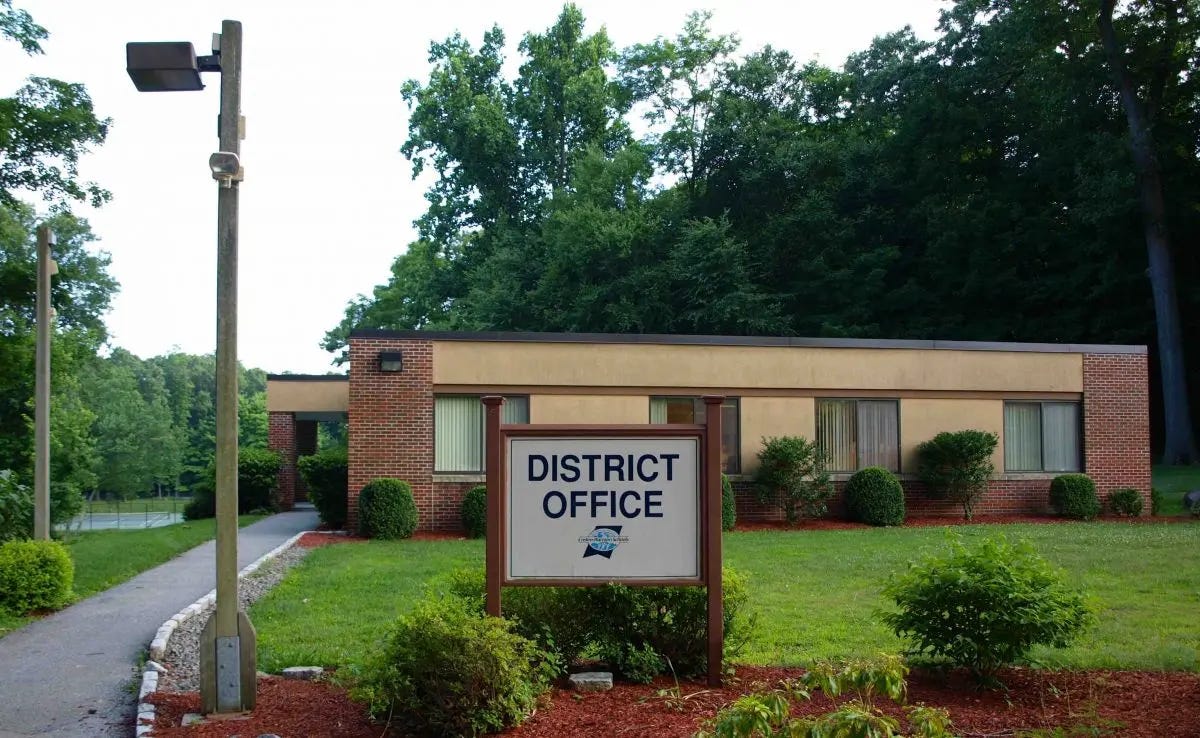School workers say they sought compromise with the Croton-Harmon district on a new contract, but district officials forced them back into mediation.
District officials and the school board president ignore requests for comment.
Since last April, we have been covering the attempts by Croton-Harmon school workers to negotiate a new three year contract for the roughly 65 employees who make up the bargaining unit, the Aides of Croton United (ACU.)
These are the lowest paid workers in the district, despite the important roles they play in the classroom and in the cafeterias. Almost all of them work for less than $20/hour and get almost no benefits. Nevertheless, last June, talks between the ACU and district officials broke down, and the two sides headed for a mediation that was originally scheduled for October.
School officials have consistently declined to comment on the negotiations, and emails this week to Superintendent Stephen Walker and school board president Ana Teague have gone unanswered as we go to press with this story.
Nevertheless, we asked ACU’s president, Jean Avolio, an aide who has worked at the Carrie E. Tomkins elementary school for nearly two decades, to give us her perspective on where things stand now. It turns out that Avolio and the union attempted to come to a compromise agreement before the mediation began, and actually thought they had achieved that. But Avolio says that the compromise fell through when the district reneged on the terms that she and Walker had agreed upon.
On September 19, Avolio told the Chronicle, she contacted Walker on her own initiative and asked to meet with him. Walker agreed, and the two met face to face in his office at the district offices the next day. While Avolio is not at liberty to divulge the details of the discussion, she says that she and Walker came to a preliminary understanding about what a new contract could look like.
On October 2, Walker got back in touch to confirm the details of the contract, and Avolio discussed the terms with her members. “They were ecstatic,” she says. On October 9, Avolio says, Walker confirmed that the two sides had a “verbal agreement” and that the district would draw up a Memorandum of Agreement (MOA.)
But when Avolio and her members got the written MOA on October 29, there were “serious inconsistencies” with what she and Walker had agreed upon, and language had been added—apparently by the district’s attorneys—that the school workers did not find acceptable.
(The mediation scheduled for October had in the meantime been postponed pending the outcome of these talks.)
After more discussion with her members, Avolio informed Walker on November 6 that the “deal was off” and ACU would go into mediation, which has now been scheduled for January 13.
Nevertheless, on November 13, Avolio says she reached out again to Walker, and again he agreed to sit down and talk with her. On November 27 they met again. Avolio says she questioned Walker about why new language had been put into the MOA that she and her coworkers had not agreed upon. Walker only provided a vague response.
Finally, on December 4, the district sent the ACU a new and updated MOA. Again, the union and its members did not find this one acceptable. While Avolio is constrained from discussing the details of these proposed contracts and the discussions with the district, she did say that one main issue was disagreement about how much total compensation the aides would receive over the ten months out of the year that they work in the schools.
“We would lose over the long run,” Avolio says.
Avolio added that the most recent breakdown in negotiations, after hopes had been raised that they might reach an agreement short of mediation, had left her members “devastated. They were hoping to receive the retroactive pay in time for the holidays.”
(Since the new contract would be back-dated to the beginning of July, they normally would be entitled to that.)
“I tried twice to resolve the issues with Mr. Walker,” Avolio says, “in hopes of sparing the taxpayers the hefty bill for the mediation. Our goal is not to cause any further costs to the community. The community has been very supportive, and we will always be grateful for that. Our goal is to be able to continue doing the work that we love on a daily basis, but also to be able to sustain a livable wage.”
Avolio adds: “Why does the Board of Education hold such contempt for the aides when the majority of us are state mandated” for example for children who have special needs and other situations where aides are required in the classroom.
Why indeed? Please see our commentary below.
Chronicle commentary:


We have editorialized a number of times in support of the low-paid school workers; we have no hesitation in doing so again. The great majority of Crotonites are Democrats, and we know that many in our village are in great pain over the outcome of the presidential election. We get reports of crying and hugging in the Black Cow, and we have no doubt that this pain is real, and that the fears of what a second Trump administration will bring are sincere.
Many journalists, pundits, analysts, and other commenters have spent the past many weeks trying to understand and explain why Trump won. While there have been many different explanations, most seem to agree on one fundamental issue: The Democratic Party has lost an important part of its working class support. Rightly or wrongly, Trump and the Republican Party have been able to convince millions of Americans that they are the best hope for a better economy and a better life.
The members of the Croton-Harmon Board of Education, and district officials, are outspoken in their advocacy of positions typical of liberal Democrats, including a supposed commitment to social justice and the principles of Diversity, Equity, and Inclusion (DEI.) More than one board member has a track record of advocating for equity for low paid workers, immigrants, and others in a disadvantaged situation.
And yet not only have no members of the school board spoken publicly in support of the school workers, to our knowledge, but the Board has been kept informed in executive sessions of the progress of the negotiations. There is no indication whatsoever that the board has directed district officials to negotiate fairly, to try to reach an equitable agreement (there’s that word “equity”), or to show any outward signs that they understand the plight of school workers who currently are not earning a livable wage and in many cases have to work two or three jobs to make ends meet.
How can we conclude that this failure by the board and district officials to give the school workers even the most basic respect is anything other than the rankest hypocrisy, given their professed principles?
In truth, we cannot come to any other conclusion at this time. We call upon board members and district officials to stop hiding behind the confidentiality of the negotiations, and explain to the entire community why they cannot do better.
*************************************************************************************************************
To share this post, or to share The Croton Chronicle, please click on these links.
Comments policy: No personal attacks, please be polite and respectful.







New York State Minimum Wage is set to increase to $16.50 per hour in New York City, Westchester, and Long Island on January 1. New lunch aides are earning less than $16.50 and new teacher aides are earning slightly more. I am surprised a school district would be paying minimum wage to an employee that works directly with students that have been identified as needing assistance per NYS guidelines.
Every year I am astounded by the astronomical salaries of school superintendents and administrators. They are paid like corporate CEOs while denying the lowest workers a fair wage. This is unfortunately a sign of our unfair times, when the chasm between the rich and everyone else grows deeper and wider.